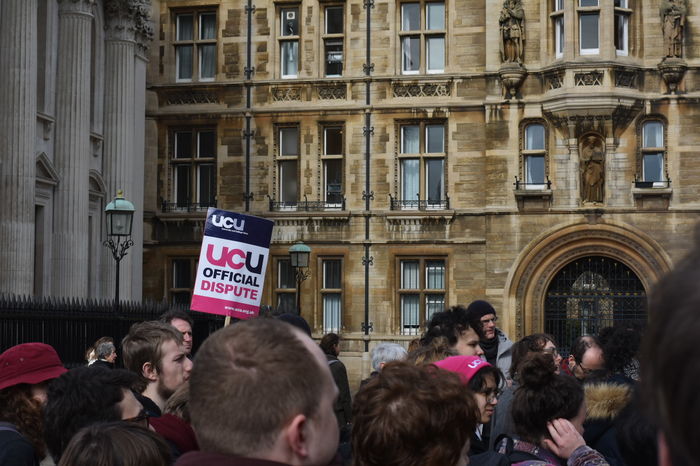Controversial marking and assessment boycott regulations passed
Students will be able to graduate with some exams unmarked

The University of Cambridge has voted to implement controversial new assessment regulations, allowing students to graduate without having some of their exams marked.
The new regulations follow a prolonged dispute over how to prevent exam disruption. The decision was made through a Ballot of Regent House, the University’s central governing body, held between 21 and 31 January 2025. 715 members voted in favour of the new regulations, 567 supported an amended version, and 106 opposed the measures altogether.
The amendment would have removed provisions to allow students to graduate if they had enough assessed work for examiners to meet an honours standard, but would defer the classification of their degree until all marks became available.
However, the regulations passed without modifications, despite opposition from academic staff who warned of potential risks to academic integrity.
Cambridge Students’ Union (SU) sabbatical officers defended the policy, arguing that students would be placed at a “distinct disadvantage” compared to their peers at other universities. They maintain that the measures “explicitly uphold academic standards while prioritising the protection of student interests,”
The officers claimed the serious disruption caused by the 2023 Marking and Assessment Boycott (MAB) in informing their votes. The boycott left many students unable to progress to further study, apply for visas, or take up job offers due to unclassified degrees. Without intervention, the SU contended, similar uncertainty could arise for future cohorts.
UCU representatives and academic staff have expressed serious reservations about the regulations, stating that allowing students to graduate without completed assessments could damage Cambridge’s global reputation.
A fly-sheet signed by 32 staff members accused the University of bowing to pressure from the Office for Students (OfS), the UK’s higher education regulator, over the measures. The body has urged institutions to ensure students receive degrees despite industrial action. Critics assert that while the OfS claims to protect student interests, its approach prioritises treating students as “consumers” at the expense of academic standards.
The dispute stems from the nationwide MAB, which began in April 2023 as part of wider industrial action by the UCU over pay and working conditions. The boycott had a severe impact across the University, particularly in humanities and social sciences subjects, where entire exam boards were cancelled in June 2023.
Hundreds of students were left without marks for their final-year assessments, delaying graduation for many undergraduates and taught postgraduates. In response to the crisis, the University set a deadline of 16 October 2023 for the submission of approved marks and class lists. Students eventually received their results via CamSIS, though the disruption led to significant tensions between staff, students, and the University administration.
The policy’s approval follows months of resistance from academic and administrative staff. More than 50 members of Cambridge faculty staged an internal challenge against the University’s handling of the boycott, arguing that the new measures were rushed through in response to regulatory pressure.
Dr William Astle, a biostatistics lecturer and membership secretary of Cambridge UCU, tabled a motion condemning the decision, warning that it undermined the credibility of Cambridge degrees and set a dangerous precedent for future industrial disputes.
The move to permit unmarked graduations comes at a time of tension between Universities and Unions. The SU continues to support the UCU’s campaign for better pay and conditions but has also urged the University to take stronger action to protect students from the fallout of future strikes.
Want to share your thoughts on this article? Send us a letter to letters@varsity.co.uk or by using this form.
 Comment / Cambridge’s tourism risks commodifying students18 April 2025
Comment / Cambridge’s tourism risks commodifying students18 April 2025 News / Cambridge student numbers fall amid nationwide decline14 April 2025
News / Cambridge student numbers fall amid nationwide decline14 April 2025 News / Greenwich House occupiers miss deadline to respond to University legal action15 April 2025
News / Greenwich House occupiers miss deadline to respond to University legal action15 April 2025 Comment / The Cambridge workload prioritises quantity over quality 16 April 2025
Comment / The Cambridge workload prioritises quantity over quality 16 April 2025 News / Varsity ChatGPT survey17 April 2025
News / Varsity ChatGPT survey17 April 2025





